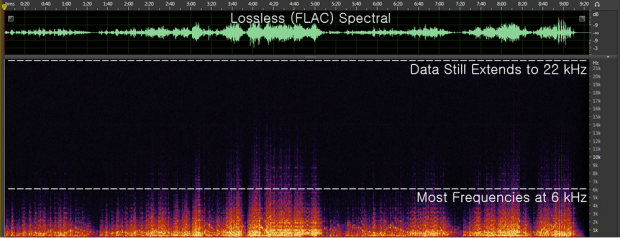Audiophiles, rejoice! Windows 10 Project Manager Gabriel Aul has announced via Twitter that Microsoft will offer native FLAC support in their latest operating system. FLAC (Free Lossless Audio Codec) is a commonly used lossless audio format that provides a more accurate reproduction of recordings. In other words, it sounds better than other formats, such as MP3, which compress recordings down to a more manageable size but lose quality in the process.
FLAC audio files are very large, but the audio quality is superb. Windows has long forced users to turn to downloadable third-party audio codec packs to support FLAC, along with several other codecs. Microsoft has finally seen the light and is integrating FLAC directly into Windows Media Player 12 and the music app. Microsoft has also pleased the world at large by finally supporting MKV as well, so perhaps there will be less third-party codec downloads with insidious bloatware installers in our future.
Discerning ears want to know what took Microsoft so long to support the popular FLAC codec, but in some ways it makes sense. MP3, while of inferior quality, creates files that are small and can be flung out to mobile devices which have limited capacity. MP3 also produces 'good enough' quality for the majority of users. FLAC files are absolutely huge, as anyone who has downloaded them (legally, of course) is well aware of. As new dense storage technologies are working their way to market, such as 3D NAND, we will begin to see portable devices with enough capacity to easily store our precious FLAC files. In the interim, storage on PC's is plentiful and cheap. Prices are hovering around 2.5c per GB, and users can easily store tens of thousands of recordings relatively cheaply.

